#arkady martine
Note
10. What is your favorite genre book to recommend to someone who doesn’t usually like that genre?
Usually when people ask me for a rec for a genre they don’t usually like, they are asking for sci-fi, and I start by trying to figure out different access points based on what they already like. I’m not much of a hard sci-fi person, tending more to the space opera and political thrillers, so here’s a few “if you like x, maybe try y”:
If you like romance, give Everina Maxwell’s Winter’s Orbit a try. It’s definitely sci-fi in setting and plot, but it also hits nicely in the formulaic patterns of a arranged-marriage, strangers-to-lovers story that will help you through it even if the sci-fi elements are throwing you off. The author has another similar book that increases the sci-fi elements and is enemies-to-lovers as well, so if you like Winter’s Orbit, Ocean’s Echo is a good next step.
If you like non-fiction, The Martian by Andy Weir is a great pick. I have multiple friends who got into reading again as adults via The Martian. It’s well-written, well-grounded, funny, and very sci-fi. If you’ve already read it, then maybe give To Be Taught if Fortunate by Becky Chambers a try. It can be described with all the same adjectives, plus it’s a short novella, so if you’re hesitant, it’s less intimidating.
If you like mysteries or political thrillers, boy is there a lot of great sci-fi out there for you. The crux of a lot of sci-fi is space or high-tech settings with a plot that asks questions about personhood, and that mixes really well with detectives and spies wandering around trying to solve problems and find truths. Try Fugitive Telemetry by Martha Wells (it’s partway through a series of great books and novellas, but that one’s the most traditional mystery plot) or A Desolation Called Peace by Arkady Martine (ambassador solving her predecessor’s mysterious death while trying to do his job)(I’d also recommend this one if you read a lot of classics) EDIT: just realized I mistyped - book 1 by Arkady Martine is A Memory Called Empire.
If YA/ Bildungsromanen/ New Adult figuring the world out through trial and error is often your jam, try Provenance by Ann Leckie (for the kid who really wants to do things right) or The Warrior’s Apprentice by Lois McMaster Bujold (for another kid who wants to do things right, but is also a high-energy chaos gremlin).
If you like fantasy, you probably already have read some sci-fi; it’s all under the speculative fiction umbrella and genres are vague anyway. All the same, I know this is the Locked Tomb Website, but give Gideon the Ninth by Tamsyn Muir a shot (it’s got magic and mayhem and an epic locked-room whodunnit mystery). The Best of All Possible Worlds by Karen Lord is also good - it has a team of people traveling together and thinking about morals and discovering new abilities, plus some romance.
I’m sure there’s lots of genres I’m forgetting right now, but feel free to send me another ask for any specific one!
#readers asks#winters orbit#oceans echo#everina maxwell#the Martian#andy weir#to be taught if fortunate#becky chambers#fugitive telemetry#martha wells#the murderbot diaries#a desolation called peace#arkady martine#a memory called empire#provenance#ann leckie#the warriors apprentice#lois mcmaster bujold#gideon the ninth#tamsyn muir#the best of all possible worlds#karen lord
587 notes
·
View notes
Text
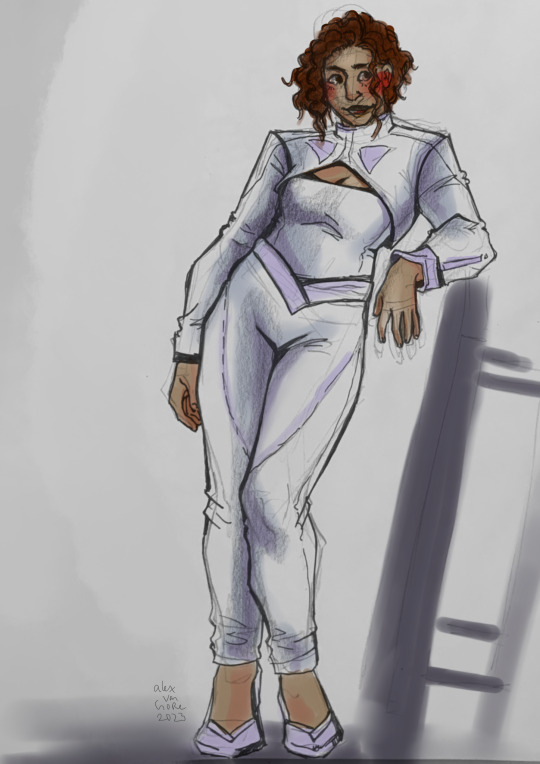
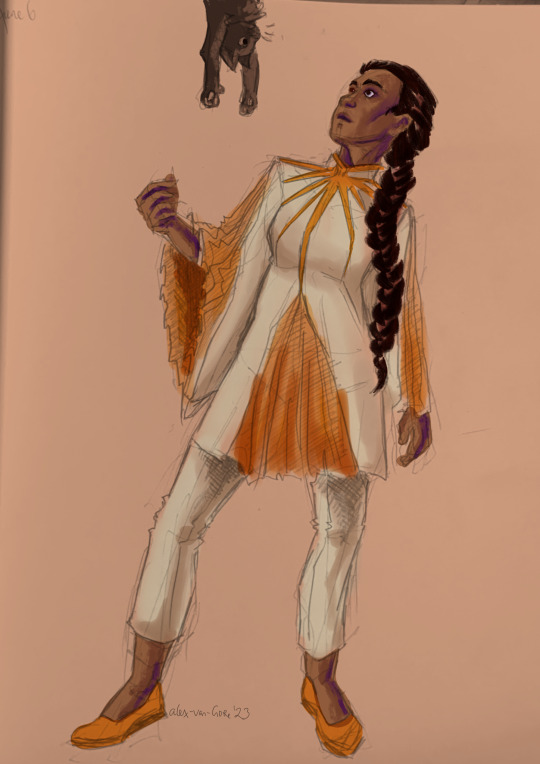
I’ve been doing the draw-everything-June challenge (where you use a pose reference every day, and, no I’m not on time at all). Two of those turned into Mahit Dzmare and Three Seagrass! Slapped some colour on them for the vibes. Mahit is in her angular white intimidation outfit, and Three Seagrass is encountering a kauraanian Kitten.
#a memory called empire#a desolation called peace#teixcalaan#arkady martine#mahit dzmare#three Seagrass
157 notes
·
View notes
Text
A request
Please suggest books to me! Preferably in the glove kink/lesbian space atrocities, urban fantasy or dark academia genres but I'll happily try any SF/fantasy at least once.
So far I've read and loved:
Before 2023
The Imperial Radch (Ancillary Justice/Sword/Mercy) - Ann Leckie
Jean le Flambeur (The Quantum Thief/The Fractal Prince/The Causal Angel) - Hannu Rajaniemi
The Windup Girl/The Water Knife - Paolo Bagicalupi
Memory of Water/The City of Woven Streets - Emmi Itäranta
2023
The Locked Tomb (Gideon/Harrow/Nona the Ninth) - Tamsyn Muir
The Masquerade (Traitor/Monster/Tyrant Baru Cormorant) - Seth Dickinson
Teixcalaan series (A Memory Called Empire/A Desolation Called Peace) - Arkady Martine
Machineries of Empire (Ninefox Gambit/Raven Stratagem/Revenant Gun/Hexarchate Stories) - Yoon Ha Lee
The Murderbot Diaries (All Systems Red to System Collapse) - Martha Wells
The Broken Earth (The Fifth Season/The Obelisk Gate/The Stone Sky) - N. K. Jemisin
Klara And The Sun - Kazuo Ishiguro
Xuya universe (The Citadel of Weeping Pearls/The Tea Master and the Detective/Seven of Infinities plus short stories) - Aliette de Bodard
This is How You Lose the Time War - Amal El-Mohtar and Max Gladstone
The Goblin Emperor/The Witness for the Dead/Grief of Stones - Katherine Addison
Some Desperate Glory - Emily Tesh
2024
The Invisible Life of Addie LaRue - V. E. Schwab
The Craft Sequence (Three Parts Dead/Two Serpents Rise/Full Fathom Five/Last First Snow/Four Roads Cross/Ruin of Angels) - Max Gladstone
Babel: Or the Necessity of Violence: An Arcane History of the Oxford Translators' Revolution - R. F. Kuang
The Luminous Dead - Caitlin Starling
Last Exit - Max Gladstone
Dead Country - Max Gladstone
Read and liked:
The Moonday Letters - Emmi Itäranta
Great Cities (The City We Became/The World We Make) - N. K. Jemisin
Piranesi - Susanna Clarke
Autonomous - Annalee Newitz
Dead Djinn universe (A Master of Djinn/The Haunting of Tram Car 015/A Dead Djinn in Cairo/The Angel of Khan el-Khalili) - P. Djèlí Clark
Even Though I Knew the End - C. L. Polk
Station Eternity - Mur Lafferty
The Mythic Dream - Dominik Parisien & Navah Wolfe
Shades of Magic (A Darker Shade of Magic/A Gathering of Shadows/A Conjuring of Light/Fragile Threads of Power) - V. E. Schwab
The Stars Are Legion - Kameron Hurley
Ninth House/Hell Bent - Leigh Bardugo
Machine - Elizabeth Bear
Our Wives Under the Sea - Julia Armfield
She Is A Haunting - Trang Thanh Tran
Was uncertain about:
Light From Uncommon Stars - Ryka Aoki
The Kaiju Preservation Society - John Scalzi
Paladin's Grace - T. Kingfisher
The House in the Cerulean Sea - TJ Klune
In the Vanishers Palace - Aliette de Bodard
And read and disliked:
To Be Taught, if Fortunate - Becky Chambers
A Psalm for the Wild-Built - Becky Chambers
The Priory of the Orange Tree - Samantha Shannon
The Calculating Stars - Mary Robinette Kowal
The Space Between Worlds - Micaiah Johnson
How High We Go in the Dark - Sequoia Nagamatsu
Shadow and Bone - Leigh Bardugo
(My pride insists I add that I have, in fact, read other books as well. Just to be clear.)
#books#lesbian space atrocities#imperial radch#ann leckie#locked tomb series#the masquerade#baru cormorant#seth dickinson#teixcalaan series#arkady martine#machineries of empire#yoon ha lee#the murderbot diaries#martha wells#broken earth trilogy#nk jemisin#tamsyn muir#this is how you lose the time war#the goblin emperor#katherine addison#aliette de bodard#annalee newitz#paolo bagicalupi#some desperate glory#emily tesh#hannu rajaniemi#a master of djinn#p djeli clark#max gladstone#craft sequence
52 notes
·
View notes
Text
Book Review 13 – A Memory Called Empire by Arkady Martine
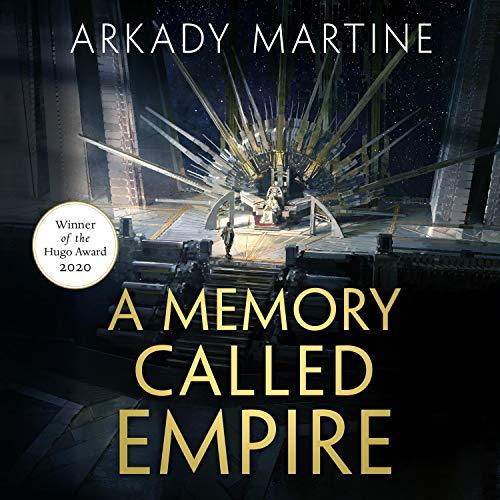
Okay, getting back into writing these reviews before I fall so far behind that catching up is just impossible. Memory is the first book this year that I’ve actually read before; I’m rereading as the first choice for a theoretical book club with some friends. Honestly quite enjoyed the experience, if only because trying to jot down some things to say when discussing it forced me to take it a little slower this time.
To get the technical details out of the way – the book won the Hugo, and did basically deserve it. The writing’s lovely and occasionally downright poetics, the two leads are both insanely compelling, and the court intrigue is appropriately convoluted and byzantine for what is obviously Constantinople IN SPACE. It’s just overall a joyous read.
So Martine’s clearly very fascinated by the experience of having your standards of aesthetics, and sophistication, and civilization defined by a culture which has never even bothered to notice your existence. The simultaneous rapture at being in the heart of the universe that you’ve read about your entire life, and deep alienation knowing you’ll never actually be a part of it. How ever most of the people trying to be friendly and compliment you don’t even notice how patronizing they’re being. And so on and etc. Mahit’s internal monologue does a really good job of selling the ambivalence of it, especially in the party scene.
The book does an excellent job of actually selling the palace district as a site of imperial grandeur, too, every building buried in symbolic aesthetics and ritual significance. But also just, like, actually impressive and grand to read about. All the contrasts between the oveflowing abundance in the city and life on Lsel are fascinating too – Martine makes really good use of the little worldbuilding quotes at the start of chapters to sell the difference. The one that really stuck in my head was a quote from a tourism
guide explaining all the myriad fine dining choices for tourists visiting the City followed directly by a Lseli agricultural report about how new hydrophonic techniques had increased rice yield sufficiently to support a whole hundred non-replacement births in the next generation (it helps that all the Teixicalaanli food legitimately sounds pretty amazing). Though the time where Mahit’s internal monologue short circuited over the idea of carrying a pregnancy to term in your own body – wasteful! Depriving the station of a necessary laborer for months and months when perfectly good artificial wombs are right there! So decadent – is a close second.
Martine is, as I understand it, a Byzantinist, and oh boy can you tell. The city’s a little bit Tenochtitlan in the aesthetics and the religion, but it really is overwhelmingly space Constantinople. The theoretically absolute emperor dealing with mobs in the streets willing and potentially able to acclaim a usurper, the constant risk of legions doing the same, the basic fact that there’s a vast empire which is viewed as nothing but an adjunct or extension of the capital city which is the entirety of all political life and the place everyone whose anyone needs to be, and so on.
In a way, the obvious Byzantine-ness of the Teixicalaanli makes them seem less imperialist than just imperial, at least from Mahit’s perspective. Which is to say, well, first of all that ‘empire’ has far too many meanings and distinguishing them is hard, but the Teixicalaanli don’t expand like the British or French, in constant competition over captive markets and strategic locations, they don’t feel some glorious burden of manifest destination or a mission civilisatrice that requires universal dominion. They already are the universe, or at least everything worthwhile in it, they go to war like medieval kings or Roman princeps – to win glorious victories and so show the empire they have the right to rule it.
The relation between Lsel and Teixicalaan – well, if suffers from the standard space opera lack of scale, first of all. The stationers number in the tens of thousands – the empire must be in the hundreds of billions, minimum. ‘Realistically’ Six Directions would never have found out about the imago device because relations with them would have been handled by some mid-ranking provincial governor, only showing up in travelogues and fanciful ethnographies. But leaving that aside, Teixicalaanli myopia also means that the cultural imperialism that the book’s so fascinated by is oddly...blameless? Teixicalaan presumably has brutal campaigns dedicated to stamping out native cultures and integrating them into the empire, but there’s hardly one directed at Lsel. The general sense you get is one of vaguely tragic inevitability – that the mismatch in size and wealth is such that of course any sort of even slightly free exchange of media and ideas will lead to Stationer culture being overwhelmed. Makes me think about arguments around CanCon regulations.
(The whole Roman, medieval feel of the empire means it all kind of calls to mind various Germanic elites actively reaching for Roman iconography and institutions to legitimize themselves as much as anything, though of course that’s not really right.)
The book’s politics are, I think, a bit limited by the degree it’s laser-focused on the very uppermost tip of imperial society – the book seems to know this too, given the thirty page digression into cyberpunk two thirds of the way through (speaking of which, I absolutely adore the fact that the elegant, ritually harmonious and utterly aesthetic architecture lasts about three metro stops away from the palace before everything starts turning into economical concrete blocks). Which isn’t really a knock on the book, but I do think some of the praise of it does get a bit overblown; there’s a limit to how much insight you can really have on imperialism when you’re so focused on the stories an empire tells about itself in its most rarified and luxurious heart.
In much the same way there’s something very, I don’t know, ‘written in America in the late 2010s’ about the political imagination the book allows itself. There are people who don’t want the world to be the world, and maybe they can help a bit, but the actual players in the game of thrones are corrupt oligarchs and populist warmongers, you know?
All that said, the book sure does portray a city that views itself as synonymous with civilization. I only realized there was a Teixicalaanli word for foreigner that wasn’t ‘barbarian’ when one of the probably-terrorists made a point of using it during the whole cyberpunk interlude. Which retroactively makes, like, every single other Teixicalaanli character in the book waaaaay more of an asshole. (fanfic thought - Teixicalaanli attempts to talk even vaguely respectfully to/about foreigners as analogous to people trying to be gender neutral or talk about nonbinary people in really strongly genedered languages, right down to the awkward neologisms that the ‘average citizens’ rolls their eyes at. What’s the Teixicalaanli term for ‘the woke plague.’?)
Also – not really a better place to put this in, but something I really do like about the worldbuilding is that no one has anything like the same ideas of what constitutes political legitimacy as the contemporary liberal default? Lsel is a corporatist state, where political power is divided between what are basically guilds who seem to have wide remit to make policy within their jurisdiction, with only one seat on the council seeming to have any sort of election. And Teixicalaan is, of course, a bureacratic-verging-on-stratocratic monarchy, with a strong sense of popular involvement in government, but through demonstrations and rioting instead of any formal process. It’s enjoyable that neither place is actually, like, familiar.
The motor of the book’s plot is byzantine (or Byzantine, I suppose) court intrigue, and as someone who loves polite conversations and poetic allusions followed directly by assassination attempts, I adored it. That said, I’m going to be a slob demanding everything be hand fed to me for a minute and saying that it all got positively opaque by the end. Which is, I suppose, entirely realistic, given Mahit’s position and role in everything, but still I wanted an Agathe Christie drawing room denouncement so bad. Was Ten Pearl actively backing the coup? If not, what was up with the Sunlit? And the Cityshocks? Why was the Information Ministry so politically passive and uninvolved in a literal coup attempt? How was Eight Loop involved in the whole final resolution, given it was her people keeping the emperor safe but it was Nineteen Adze who was with him on camera? All these questions and more, unanswered and, probably, irrelevant! But like, inquiring minds want to know.
Though speaking of the coup, I really did absolutely adore how, like,incompetent and amateurish both coup attempts were? Which seems like it would be a plot hole, but actually it’s probably the strongest argument the book can make for Six Direction’s immortality plan – the empire has been peaceful for so long no one remembers how to do a coup.
Anyway, yes! Extremely good book, Mahit and Seagrass are absolutely great protagonists. Not at all sorry I’m peer pressuring people into reading it.
187 notes
·
View notes
Text

2023 booklist for Small Business Saturday
Middle Grade
Simon Sort of Says by Erin Bow
I am going to pat myself on the back forever because I hosted the writing retreat where Erin started work on this book. Not many people say, "I'm going to write a middle grade novel that will shine the light of a white hot sun on gun violence and I'm going to make it funny." But Erin did. And it is amazing.
Teen
The Luminaries and The Hunting Moon by Susan Dennard
At the launch for The Hunting Moon at Schuler's Books in Grand Rapids, they asked me to describe The Hunting Moon in six words and I said, Magic, Monsters, Witches, Impossible Family Expectations.
This unabashedly teen book was a breath of fresh air for me. Return to a simpler time when teenagers just had to risk their lives killing monsters in enchanted forests while struggling to win approval from people they are beginning to think have really questionable values.
Summer in Orcus by T Kingfisher
Ursula Vernon writes books for younger readers under her own name and everything from YA up to adult under the name T Kingfisher. I could recommend any of her books, but Summer in Orcus has a special place in my heart. Summer's mother wants to keep her safe, so safe that when Baba Yaga offers Summer a portal to the magical realm of Orcus, Summer is through it like a shot.
Adult SF and Fantasy
The Adventures of Amina Al Sirafi by Shannon Chakraborty
A retired pirate! Who happens to be a mother! Who is torn between her desire to live a nice safe life with her daughter and, you know, piracy.
A Memory Called Empire by Arkady Martine
When the new Ambassador from tiny Lesl Station arrives at the capital of the far flung galactic empire, her first job is to figure out who murdered her predecessor. I loved the convolutions in Martine's world building and story telling.
Gods of Jade and Shadow by Silvia Lorena Garcia
It's the Jazz Age in Mexico. Someone's been keeping the Mayan God of Death trapped in a trunk at the foot of the bed. And that someone's granddaughter, who is utterly sick and tired of her horrible relatives, has just opened that trunk.
Where Late the Sweet Birds Sang by Kate Wilhelm
This is an old one. This book was published in 1976 and has recently been republished. I read it thirty years or more ago and have never forgotten it. It's a thoughtful, brutal, beautiful book about the decay of civilization and the importance of individuals, individuality, and the preservation of diversity.
Warrior's Apprentice by Bujold
If you like Gen, I think you'll love Miles. 😁
#erinbow#simonsortofsays#theluminaries#susandennard#summerinorcus#tkingfisher#ursulavernon#theadventuresofAminaAlSirafi#shannon chakraborty#amemorycalledempire#arkady martine#godsofjadeandshadow#silvia lorena garcia#wherelatethesweetbirdssang#kate wilhelm#warriorsapprentice#Lois McMaster Bujold#small business saturday
56 notes
·
View notes
Text
Feel free to make suggestions. I may make another poll if there are enough candidates.
More polls.
#polls#sapphic reads#queer reads#lgbt reads#sapphic leads#teixcalaan#a memory called empire#a desolation called peace#arkady martine#the stars are legion#kameron hurley#this is how you lose the time war#amal el mohtar#max gladstone#the priory of the orange tree#samantha shannon#ninefox gambit#yoon ha lee#the privilege of the sword#ellen kushner#down among the sticks and bones#wayward children#seanan mcguire#the long way to a small angry planet#the wayfarers#becky chambers#gideon the ninth#harrow the ninth#the locked tomb#tamsyn muir
271 notes
·
View notes
Text

50 notes
·
View notes
Text
"A Memory Called Empire" perfectly captures the feeling of being on the outside of an empire, looking in as it immolates itself, and hoping not to get burned.
251 notes
·
View notes
Text
Bonus 82: Frak, smeg, and more swearing in fiction - Ex Urbe Ad Astra interview with Jo Walton and Ada Palmer
The words that a culture considers taboo or obscene can tell us things about what that culture considers important or profane. For example, many swear words in present-day English relate to sex and body functions, while historically in English we've also had more religious swears, like "God's blood" and "God's teeth". In fiction, authors can use invented swear words to get around censorship, like "frack" in Battlestar Gallactica and "frell" in Farscape, as well as to create a sense of a particular culture, such as "smeg" in Red Dwarf, which then sometimes take on new lives of their own among fans.
In this bonus episode, Gretchen gets enthusiastic about swearing (including rude gestures) in fiction with science fiction and fantasy authors Jo Walton and Ada Palmer, authors of the Thessaly books and Terra Ignota series, both super interesting series we've ling-nerded out about before on the show. We talk about fictional substitutes for the F word, expletive infixations like abso-bloody-lutely, sweary lexical gaps (why don't we swear with "toe jam!") and old fashioned swears in English. We also talk about learning real-life swear words without full awareness of their emotional valence by reading fiction (such as how Gretchen and Ada don't find "bloody" as taboo as Jo does), cultural differences in taboo gestures such as pointing with the middle finger in real life and teeth-baring smiles in Arkady Martine's A Memory Called Empire, and an extra bonusy bit about recording emotional punctuation in the audiobook of Because Internet.
Content note: Lingthusiasm episodes about swearing contain real swears! If you typically play this podcast around kids, for example, it's up to you whether you want to have that conversation with them.
Also note that this conversation was first recorded as an interview with Gretchen for Ada and Jo's podcast, Ex Urbe Ad Astra, where it will one day appear in longer form, but they've kindly let us share some of Lauren's favourite snippets from it in advance (plus a few comments from her at the end!).
Listen to this episode about swearing in fiction, and get access to many more bonus episodes by supporting Lingthusiasm on Patreon.
#linguistics#language#lingthusiasm#bonus#bonus episodes#bonuses#patreon#podcast#lingfic#linguistic fiction#scfi#fantasy#Ex Urbe Ad Astra#Jo Walton#Ada Palmer#Arkady Martine
44 notes
·
View notes
Text

I’ve decided to name it Thirty-six All Terrain Tundra Vehicle
220 notes
·
View notes
Note
i've heard good things about a memory called empire so i'm curious. can i ask why you gave it a lowish score?
To restate, I thought the book was decent, not excellent. I plan on reading the sequel! I thought it was a technically impressive debut novel with interesting worldbuilding that stumbled a little because of pacing and some bad poetry. Thematically I had more problems.
My biggest problem was that while it was a novel that wanted to talk about imperialism and indeed was presented as one by the author, it chose the closed elite focused setting of court intrigue. I'll admit I'm harsh on court intrigue because it bores me, and ideologically most of them espouse a Great Man perspective of history so. Imperialism ended up being realised merely as a concern of cultural preservation, with the difference between imperial subject and the core repeatedly becoming a matter of taste over the more interesting concerns of exploitation or agency. Which is also what I hate about diaspora lit, where the individual elite immigrant's sense of cultural alienation is front and center. Hence the reference to Baru, because where the hell is your political economy! Martine also critiqued Seth Dickinson for writing the Maskerade empire as unrealistic because it was too brutal, which makes this choice by Martine make a depressing kind of sense.
I'm admittedly cynical about this but I really dislike when writers write novels about how 'storytelling' or in this case 'poetry' changes the world in dramatic ways. It reads very much as pandering to readers who need to be told that their hobby is important or something. Something Vonnegut quote about Vietnam War artistic opposition having the effect of a custard pie.
That said, the book had more interesting thoughts on the nature of culture/self and consciousness as embedded in memory through the imago machine as a device. The chapters dealing with that in the last third of the book were some of the best SFF writing I've read this year.
123 notes
·
View notes
Text

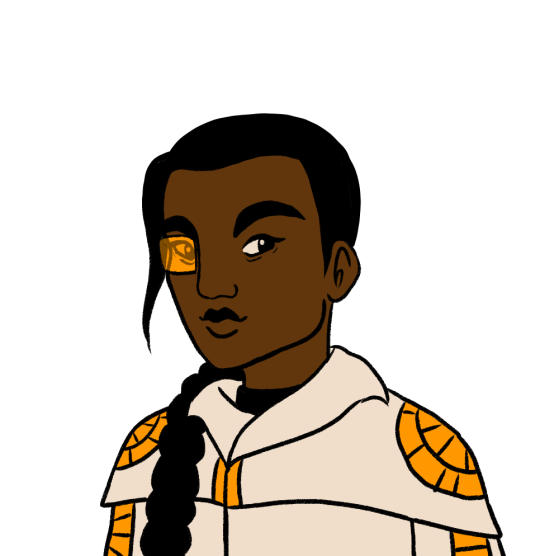


I finished reading A Desolation Called Peace today and I really wanted to draw my favourite the characters! From left to right: Mahit, Three Seagrass, Eight Antidote, and one of the hive mind aliens.
I decided to base the aliens on bears cause their ears are described as round and fluffy (and they're my favourite animals!)
#a memory called empire#a desolation called peace#my art#fanart#mahit dzmare#three seagrass#eight antidote#arkady martine#teixcalaan
68 notes
·
View notes
Text

30 notes
·
View notes
Photo

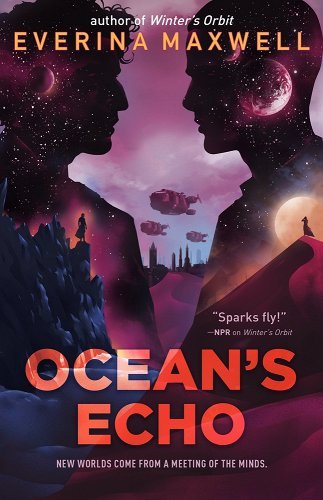

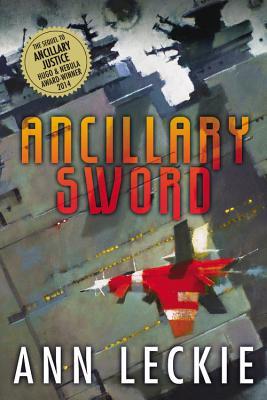
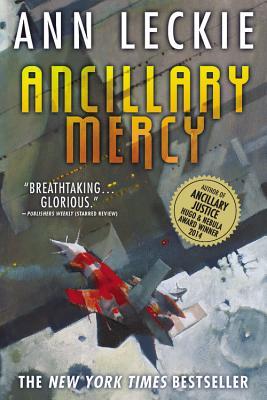
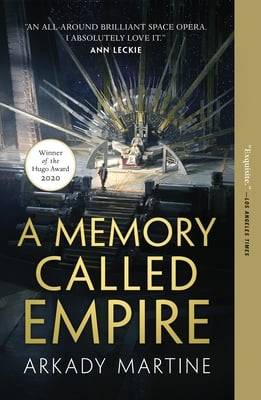
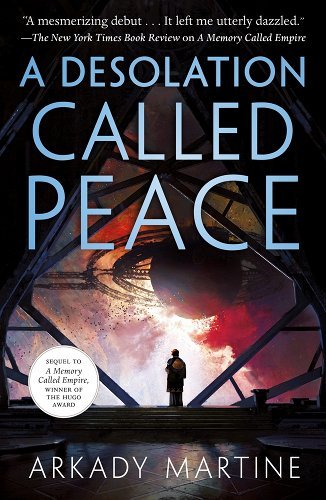
queer sci-fi i think everyone should read! i just finished ocean’s echo today and have an atrocious book hangover, it was so fantastic!
#science fiction#book recs#sci fi#books#arkady martine#everina maxwell#ann leckie#ancillary justice#a memory called empire#winter's orbit#bookblr
213 notes
·
View notes
Text
Character, book, and author names under the cut
Three Seagrass- A Memory Called Empire by Arkady Martine
Daniel da Silva- Think of England by KJ Charles
Chu Wanning- The Husky And His White Cat Shizun by Meatbun Doesn't Eat Meat
Celia Lang- These Violent Delights by Chloe Gong
#Three Seagrass#A Memory Called Empire#Arkady Martine#Daniel da Silva#Think of England#KJ Charles#Chu Wanning#The Husky And His White Cat Shizun#2ha#erha#Meatbun Doesn't Eat Meat#Celia Lang#These Violent Delights#tvd#Chloe Gong#lgbt books#polls#queer book character tournament 2
60 notes
·
View notes
Text
Twelve Azalea, Indistinguishable Courtier Number Three, except for how looking at him gave Mahit the impression of being in some other culture's impeccably observed standard of masculine beauty. She felt a little peculiar about her lack of response. He was like an art object.
-A Memory Called Empire, by Arkady Martine
30 notes
·
View notes